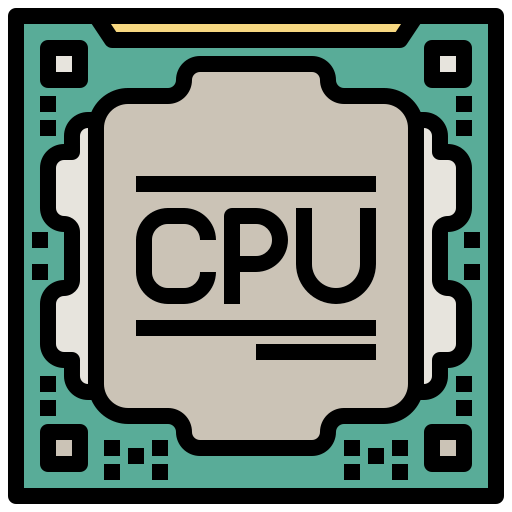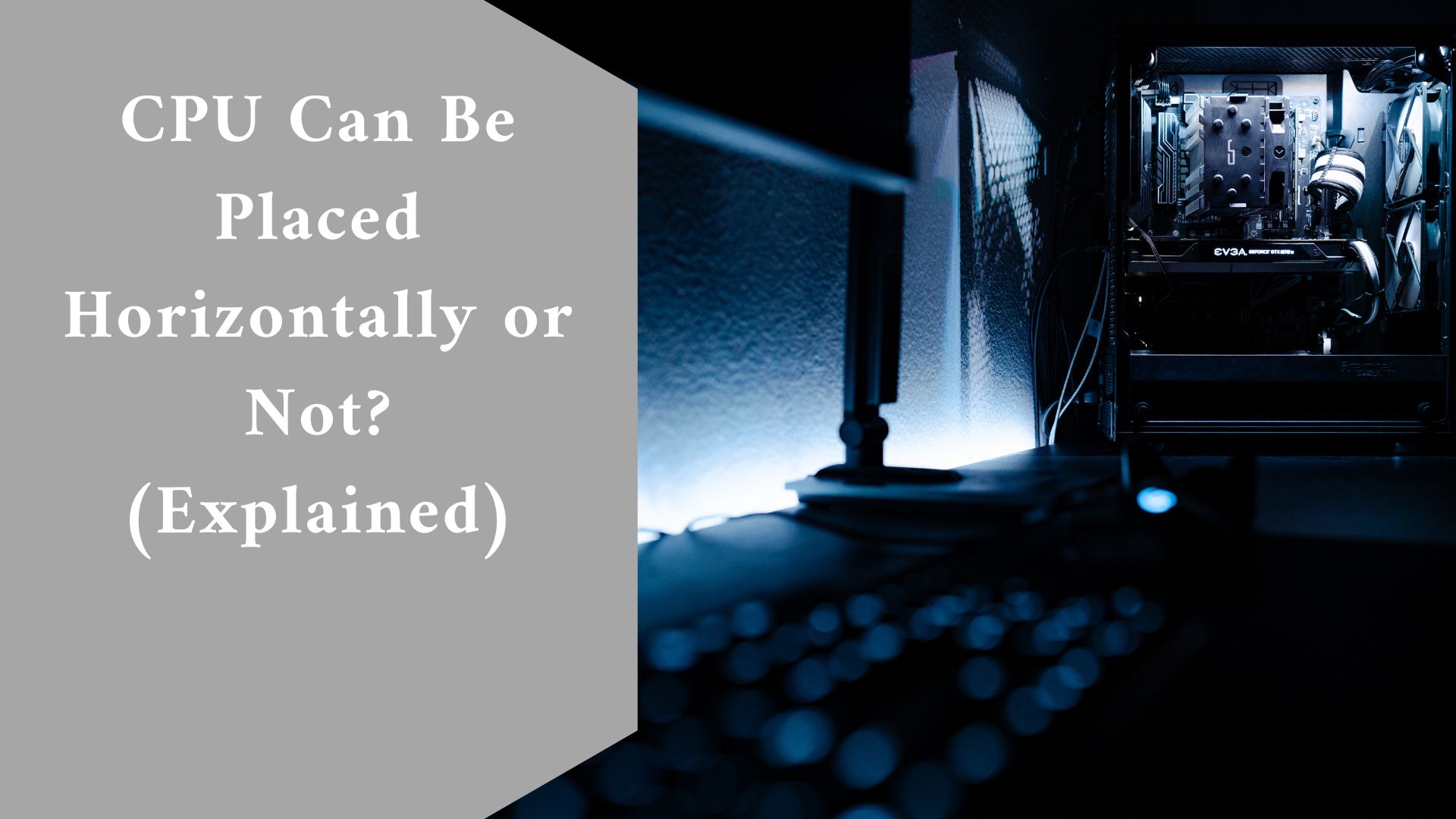Yes, as long as you are not blocking any vents. CPUs are programmed to run in only one direction. However, there are a few exceptions where CPUs can be mounted horizontally.
It enables more effective CPU cooling and positioning. While this technology is not extensively used, it is used by a few companies.
It should be noted that this arrangement is not recommended for routine use and should only be utilized in extreme circumstances. This article contains all of the information you need to know about Can You Keep CPU Horizontal.
Can the CPU be Placed Horizontally?
The short answer to the question in the headline is “yes.” As long as there is appropriate airflow and cooling, you can keep the CPU horizontal.
Most CPUs include a heatsink and fan unit (HSF) built primarily for horizontal installation. When maintaining your CPU horizontally, there are a few factors to keep in mind.
- First, make sure the HSF is properly installed and in excellent contact with the CPU. Too much thermal paste or an improperly aligned HSF might cause cooling issues and harm to your CPU.
- Second, ensure that there is adequate airflow around the motherboard and CPU. It’s a good idea to have at least one intake and one exhaust fan on your case.
- Ensure that all cables are routed such that they do not obstruct airflow, particularly near the CPU.
Reasons for Keeping the CPU Horizontal:
Here are some reasons why you should keep your CPU horizontal.
- Heat Dissipation
- Easier Installation/Upgrade
- More Compact Form Factor
-
Heat Dissipation
CPU cooling has been a topic of discussion for many years. There are various strategies for keeping CPUs cool, and one of the most popular is to keep them horizontal.
The primary rationale for keeping CPUs horizontal is to better dissipate heat.
When CPUs are mounted vertically, heat accumulates on the top of the chip. It can overheat the CPU and finally cause it to fail.
Heat spreads out more evenly and quickly when the CPU is kept horizontal. It keeps the CPU cooler and keeps it from overheating.
-
Easier Installation/Upgrade
A horizontally mounted CPU is more easily upgraded than a vertically put CPU.
When installing a CPU vertically, be careful not to touch the pins, since they might be easily damaged.
Because the motherboard protects the nails when you install a CPU horizontally, it is considerably less likely to be harmed.
-
More Compact Form Factor
Although vertical CPU heat sinks are increasingly prevalent, there are still reasons to keep the CPU horizontal. The tiny form factor is one explanation.
A horizontal heat sink takes up less room than a standing heat sink. It is critical while attempting to build a compact form factor computer.
Another advantage of keeping the CPU flat is that it distributes heat more evenly.
It is necessary for overclocking because if the heat sink cannot dissipate the heat effectively, the CPU can be damaged.
Reasons to Maintain CPU Verticality:
Here are some reasons why you should keep your CPU upright.
- Improved Airflow
- Port Access Made Easier
-
Improved Airflow
Most people are unaware that how your computer’s CPU is oriented can affect its performance. Surprisingly, the CPU’s position has a substantial impact on airflow and cooling.
To get the maximum performance out of your computer, keep the CPU vertical.
When the CPU is oriented horizontally, it restricts airflow to other components in the system. It might cause overheating and poor performance.
Furthermore, horizontal CPUs are more prone to dust accumulation, which can degrade performance and raise the risk of component failure.

Vertical CPUs increase ventilation and cooling, resulting in improved performance and longer component life spans.
Furthermore, vertical CPUs are easier to clean than horizontal CPUs, making them a better solution for anyone concerned about dust accumulation.
-
Port Access Made Easier
When building or upgrading a computer, it’s critical to think about how each component will fit inside the chassis.
One of the most important options is whether to keep the CPU vertical or horizontal. There are various reasons why the CPU should remain vertical. The first benefit is that it makes it easier to reach ports on the rear of the machine.
It is particularly useful for motherboards with a restricted number of ports. When the CPU is horizontal, it can be difficult to reach those ports.
The Benefits of Horizontal CPU Placement:
Horizontal placement, on the other hand, has several advantages over vertical placement.
- Horizontal CPU placement refers to a style of computer organization in which CPUs are arranged in a single line, usually adjacent to each other. This arrangement is frequently employed in multiprocessor systems to boost speed by allowing data to be easily exchanged between processors.
- Because all of the CPUs may be cooled by a single fan or heat sink, a horizontal CPU layout allows for more efficient cooling.
- It enables you to install more RAM or a video card.
- The heat sink and fan are directly above the CPU. Because there is less temperature fluctuation, the computer case can manage the heat better.
Disadvantages of Horizontal CPU Positioning:
There are two sorts of CPU placements in the computer world: horizontal and vertical.
Most people believe that vertical placement is preferable because it has a smaller footprint and takes up less space on the motherboard. This style of positioning, however, has significant drawbacks.
- One disadvantage is that cooling the CPU in a vertical position can be difficult. The heat sink and fan are not directly above the chip, which can cause it to overheat.
- Another disadvantage is that you may have to remove the cover of your computer case if you wish to install more RAM or a video card.
Final thought
Finally, Can You Keep CPU Horizontal? Keeping your CPU horizontal can help it be more comfortable and lengthen its life.
While there are occasional exceptions, this is generally true. If you want to boost the performance of your PC, keeping your CPU cool is a great place to start.
Related Article here

